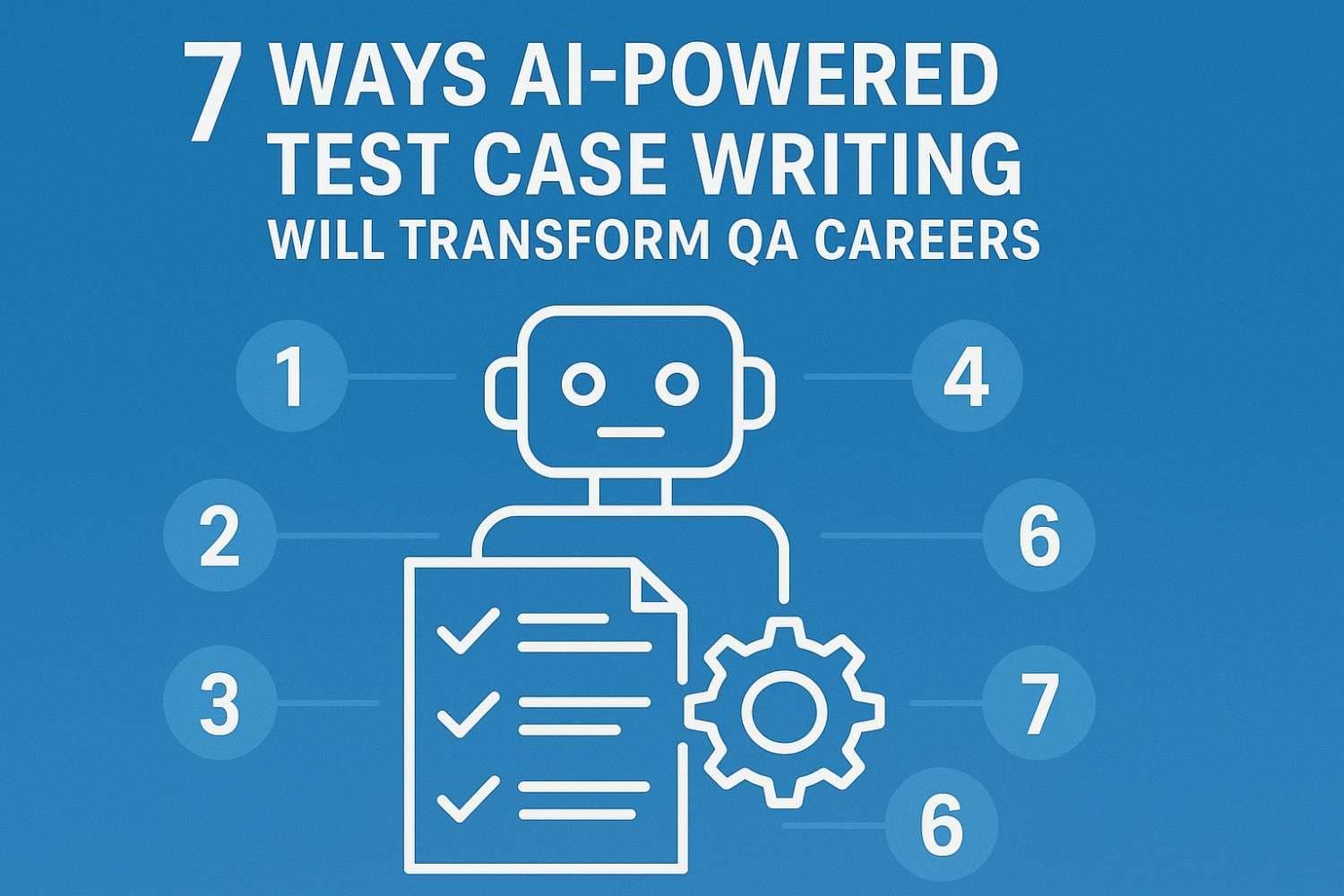The Future of Software Testing: 7 Ways AI-Powered Test Case Writing Will Transform QA Careers
Viral Patel
May 20, 2025
3 min read
Last updated May 27, 2025

Software testing has always been at the heart of delivering reliable, high-quality software. But as technology advances rapidly, Quality Assurance (QA) professionals must adapt, evolve, and embrace new methodologies. One revolutionary trend that's reshaping the software testing landscape is Artificial Intelligence (AI)—particularly AI-powered test case writing.
In this blog post, we'll explore seven impactful ways AI-driven test case generation is transforming QA careers. By understanding these emerging trends, software testers, QA engineers, and test automation specialists can better prepare to leverage AI, boost efficiency, and advance their careers.
Let's dive right in!
Traditionally, manual test case writing is not only time-consuming but also prone to gaps in coverage due to human oversight. AI-powered tools, however, analyze vast amounts of data, including user interactions, code repositories, and defect histories, to generate comprehensive test cases quickly.
Practical Tip: Embrace AI-based test coverage tools like Testim or Functionize to identify blind spots in your test suites, ensuring robust coverage.
Example: Suppose your QA team previously spent days manually creating test cases for a new e-commerce checkout functionality. AI-driven tools can automatically generate diverse scenarios—including edge cases—within a fraction of that time, significantly improving resource allocation.
Even experienced testers occasionally overlook critical test scenarios, which can later become costly defects in production. AI-driven test case writing minimizes human error by systematically analyzing all possible interactions and outcomes.
Actionable Advice: Integrate AI tools into your testing workflows to systematically cover complex or repetitive scenarios, freeing up human testers to focus on exploratory testing and high-value tasks.
Also Read: Why Test Case Documentation Matters More in an AI-driven Testing World
QA teams often face barriers in adopting test automation due to the steep learning curve and resource-intensive scripting requirements. AI simplifies automation by automatically generating robust, maintainable test scripts from plain English descriptions or user behavior data.
Example from Experience: I've observed teams transition from manual testing to automation seamlessly using AI-powered test generation platforms like TestCraft or mabl, significantly accelerating their automation journey.
AI-powered test case writing doesn't just streamline the creation of test scenarios—it actively predicts and prevents defects based on historical data. By recognizing patterns and common points of failure, AI tools help testers proactively identify potential bugs before they impact end-users.
Practical Tip: Leverage AI analytics insights from tools like Applitools or ReportPortal to predict defect-prone areas ahead of deployment, thus improving application stability.
The transparency and clarity provided by AI-generated test cases improve communication between developers and QA teams. Clear, structured, and comprehensive test cases facilitate better mutual understanding and reduce ambiguity.
Scenario Example: When AI generates detailed test scenarios from developer commits, developers and testers can collaboratively pinpoint exactly where potential issues might arise, fostering stronger cross-team alignment.
With AI handling repetitive, routine tasks, QA professionals can now dedicate more time to exploratory testing—applying human intuition, creativity, and domain expertise to uncover subtle, elusive defects.
Actionable Advice: Encourage your QA team to leverage their freed-up bandwidth for exploratory sessions, usability testing, and user-experience-centric evaluations, significantly enhancing software quality.
AI-powered test case writing doesn't threaten QA jobs; rather, it reshapes them by elevating the skill sets required. Testers who embrace AI will gain valuable experience in AI-driven tools, data analytics, and automation—skills increasingly in demand.
Career Tip: Invest in continuous learning opportunities like AI testing workshops, certifications (ISTQB AI Tester), or online AI-focused courses to future-proof your career.
Personal Thought: I've witnessed firsthand that testers who proactively adopted AI-driven solutions became key leaders and innovative voices within their organizations.
The integration of AI-powered test case writing into software testing is not just inevitable; it's already taking place. As QA professionals, embracing AI provides us significant advantages—from improved test coverage and efficiency to reduced human error and enhanced career growth opportunities.
Now is the time to proactively adapt to AI advancements, leverage these powerful tools, and position yourself at the forefront of the software testing evolution.
Ready to take the next step? Start exploring AI-powered testing tools today, invest in relevant skill-building, and share your experiences and insights with the QA community to foster collective growth.
Let's stay ahead of the curve and lead the transformation in software testing!

